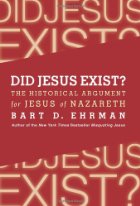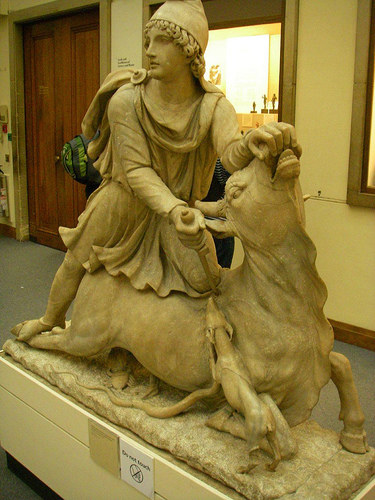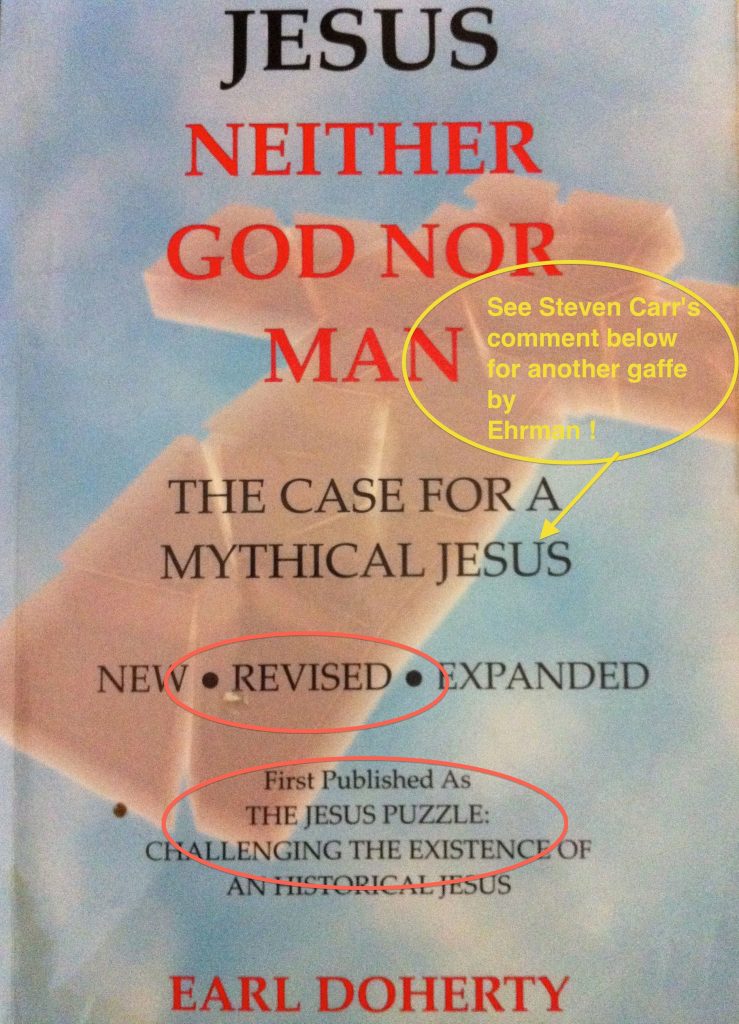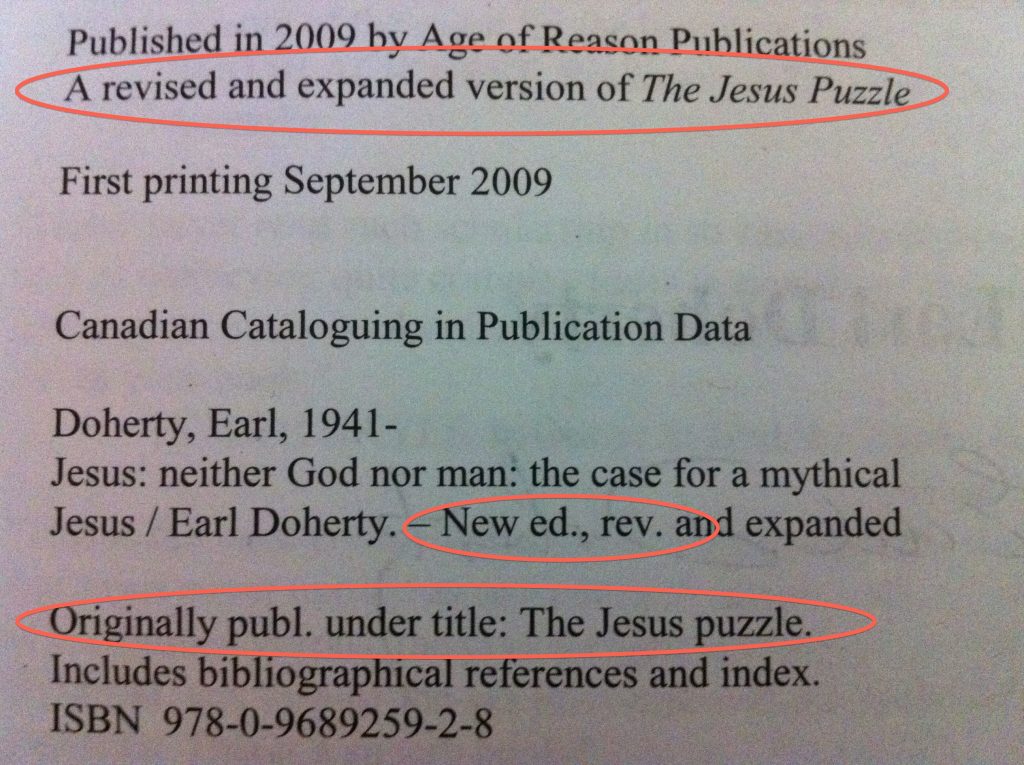 This second post addresses the opening pages of Ehrman’s first chapter. It continues from the last words of the first installment.
This second post addresses the opening pages of Ehrman’s first chapter. It continues from the last words of the first installment.
Here Doherty examines
- Ehrman’s appeal to Schweitzer and the problems faced by both Schweitzer and Ehrman
- The logical improbability of Ehrman’s reconstruction of an historical Jesus
- Ehrman’s appeal to pre-Gospel sources and his failure to notice the problems that will have for his own reconstruction
- Ehrman’s treatment of the history of mythicism and the contradiction his observations present for common claims about mythicism among mainstream scholars
* * * * *
.
“But as a historian I think evidence matters,” says Ehrman. Let’s see how he handles evidence, and those who interpret that evidence in a different way.
.
Chapter 1: An Introduction to the Mythical View of Jesus
.
Ehrman begins by quoting the great Albert Schweitzer. On the one hand, says Schweitzer:
There is nothing more negative than the result of the critical study of the life of Jesus. The Jesus of Nazareth who came forward publicly as the Messiah, who preached the ethic of the Kingdom of God, who founded the Kingdom of heaven upon earth, and died to give his work its final consecration, never had any existence.
On the other hand, says Ehrman,
toward the end of his book he [Schweitzer] showed who Jesus really was, in his own considered judgment. For Schweitzer, Jesus was an apocalyptic prophet who anticipated the imminent end of history as we know it.
This of course is a “judgment” dear to Ehrman’s heart, because he himself subscribes to it and has written a book advocating such a picture of Jesus. It is a mantra in New Testament scholarship these days, in agreement with Schweitzer a century ago, that immense difficulties abound in the effort to unearth the real historical man from beneath the Christ of faith. And yet scholar after scholar, from Schweitzer and before him to Ehrman and no doubt after him, can claim that they have done so, and have usually disagreed with each other on what the result is. Both Ehrman and Schweitzer can acknowledge the difficulty of getting beyond the faith literature—Ehrman and more modern scholarship have benefited from the realization that there is no “history remembered” in the Gospels, and that virtually all of it is midrashic construction out of scripture—and yet both declare certainty in their knowledge that the Jesus character (whatever he was) did indeed exist. Continue reading “2. Earl Doherty’s Response to Bart Ehrman’s Case Against Mythicism: Chapter 1”





